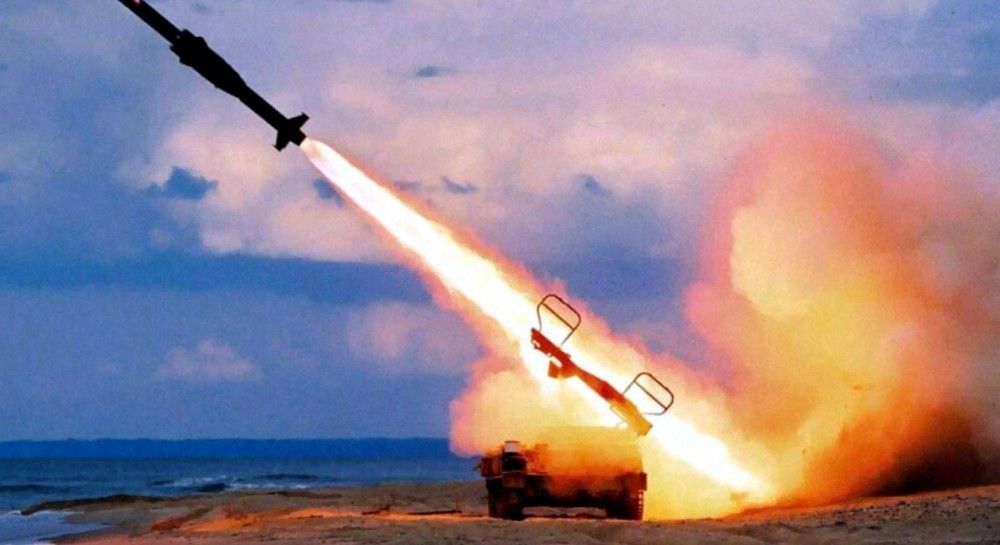
William D. Hartung / The National Interest
Editor’s note: In late September, The National Interest organized a symposium on nuclear policy, nonproliferation, and arms control under the Biden administration. A variety of scholars were asked the following question: “Should Joe Biden seize the opportunity of his administration’s Nuclear Posture Review to redefine the role of nuclear weapons in US security planning? How should US policy change to address the proliferation threats that the United States is facing?” The following article is one of their responses:
Roll Back Nuclear Modernization Programs, Mr. President

Joe Biden campaigned on nuclear weapons reduction:
He needs to make good on his pledge
William D. Hartung / The National Interest
(October 5, 2021) —As a candidate for president, Joe Biden pledged to reduce the role of nuclear weapons in US security policy. So far, however, he has failed to put his money where his mouth is. Notably, in his first budget proposal, he funded every element of the Department of Defense and Department of Energy’s nuclear weapons modernization plan, which could cost up to $2 trillion over the next two decades.
The funding plan included not only items in the Pentagon’s pre-existing plan, but new systems like a sea-launched cruise missile and a low-yield nuclear warhead that had been introduced during the Trump administration. At least initially, some administration allies attributed this budgetary largesse to the short time the Biden team had to craft its first budget and promised significant changes once the Nuclear Posture Review, now in process, is concluded.
Let’s hope the optimists are right. There are some obvious changes in nuclear procurement and policy that can make America safer while saving hundreds of billions of dollars.
First and foremost, the administration should rethink the nuclear triad, with a particular emphasis on intercontinental ballistic missiles (ICBMs). Former Secretary of Defense William Perry has described these systems as “some of the most dangerous weapons in the world” because the president would have only minutes to decide whether to launch them in a crisis, greatly increasing the chances of an accidental nuclear war based on a false alarm.
As a first step, the Biden administration should cancel the new ICBM, known formally as the Ground-Based Strategic Deterrent (GBSD). Building a new ICBM would extend the period during which the United States could deploy these unnecessary missiles through 2075, an absurd length of time given the need to move towards phasing them out in the interests of safety and security.

Truth be told, ICBMs should be eliminated from the US arsenal altogether. US submarine-based missiles and nuclear-armed bombers are more than sufficient to dissuade any nation from attacking the United States or its allies with nuclear weapons. An alternative nuclear posture review proposed by the organization Global Zero would eliminate ICBMs and rely on a smaller force of bombers and ballistic missile submarines. These changes would be part of a “deterrence only” nuclear strategy.
The other key change that the Nuclear Posture Review can advance is a change in how and when nuclear weapons might be launched. The recent controversy over fears that former President Donald Trump might have contemplated the use of nuclear weapons—and the reported moves by Joint Chiefs of Staff chair Gen. Mark Milley to prevent that outcome—has underscored the need for a new approach.
The surest route would be to adopt a policy of no-first-use of nuclear weapons. Doing so would prevent a first strike or accidental launch and diminish the likelihood that an adversary would strike in fear of first use by the United States, reducing the risk of a nuclear conflict in the process. A complementary approach would be to end the policy of giving the president sole authority to launch nuclear weapons. Legislation sponsored by Sen. Ed Markey (D-MA) and Rep. Ted Lieu (D-CA) would require a declaration of war by Congress before the president could strike first with nuclear weapons.
The only way to be truly safe from nuclear weapons is to eliminate them altogether, an outcome endorsed by presidents from John F. Kennedy to Ronald Reagan to Barack Obama. Achieving these goals will require negotiations with other nuclear powers, but the United States can move in the right direction by taking the steps outlined above. Biden should maintain a robust deterrent but begin the urgently needed process of reducing the role of nuclear weapons in US and global nuclear policies.
William D. Hartung is the director of the Arms and Security Program at the Center for International Policy.
Posted in accordance with Title 17, Section 107, US Code, for noncommercial, educational purposes.